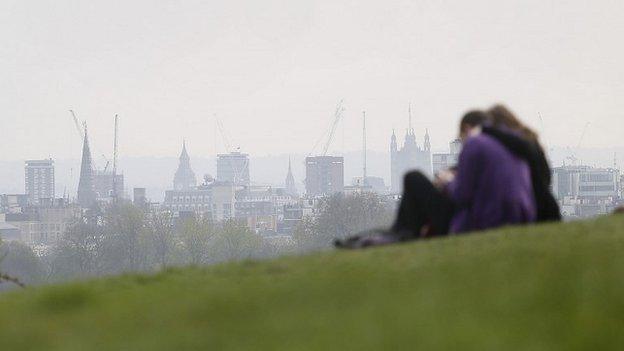Heathrow Airport expansion: The environmental challenges
- Published
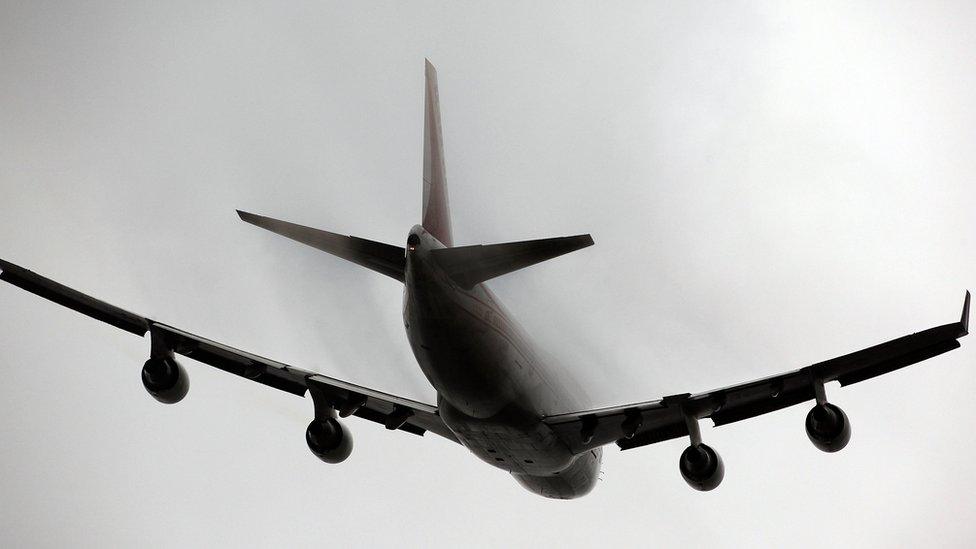
There a lot of complex questions to be answered if Heathrow Airport is to be extended
What's the worst kind of noise? Lots of it spread over a day, week a month or short, sharp peaks with long gaps in between? How do you know if a traffic jam in Hounslow is because of the airport a few miles away? How big will biofuels be in the future?
The government's got a lot of complex questions to answer if it decides to expand London's Heathrow Airport. The Airports Commission's report, external has kicked the process off, but it can't decide policies. Ultimately the government must referee the whole thing.
Whatever ministers decide must be legally watertight if their policy isn't to go the way of all the other airport expansion schemes, gathering dust in the loft of the Department for Transport (DfT). Here are the big questions the government's wrestling with.
Traffic challenges
Many campaigners think that traffic pollution is the issue that could stop Heathrow expansion in its tracks. And it all comes down to tiny tubes on lampposts around west London. Amongst other things, they measure nitrogen dioxide (NO2), the poisonous gas produced by diesel engines.
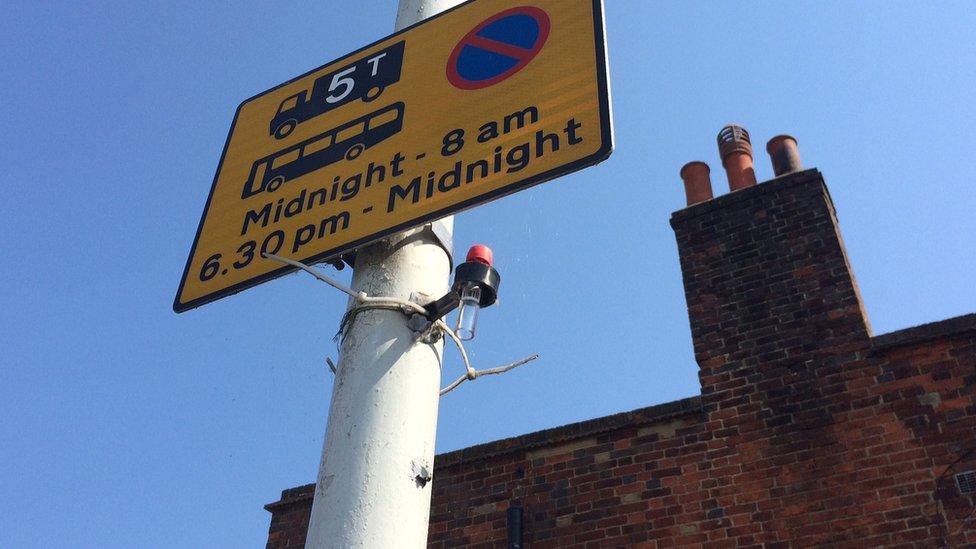
Tubes like this one are used by councils across west London to monitor air pollution levels
One key question is whether building a third runway will attract so many new cars, buses, lorries and cabs that the local area will keep breaking EU pollution laws.
Heathrow says it's got plans to attract far more staff and passengers onto public transport - things like charging people to drop off by car, car sharing and cheaper train tickets.
The airport boss promises no more cars as a result of expansion. Transport for London , externalscoffs at the claim, saying it could lead to an additional 40,000 road journeys.
Critically, the government has to work out how you decide what cars and lorries are there because of a new runway. Is a traffic jam on a road two miles away worse because of Heathrow?
Vans might not be going directly to the airport but what if they are delivering to a business that uses a business that relocated because of the expansion?
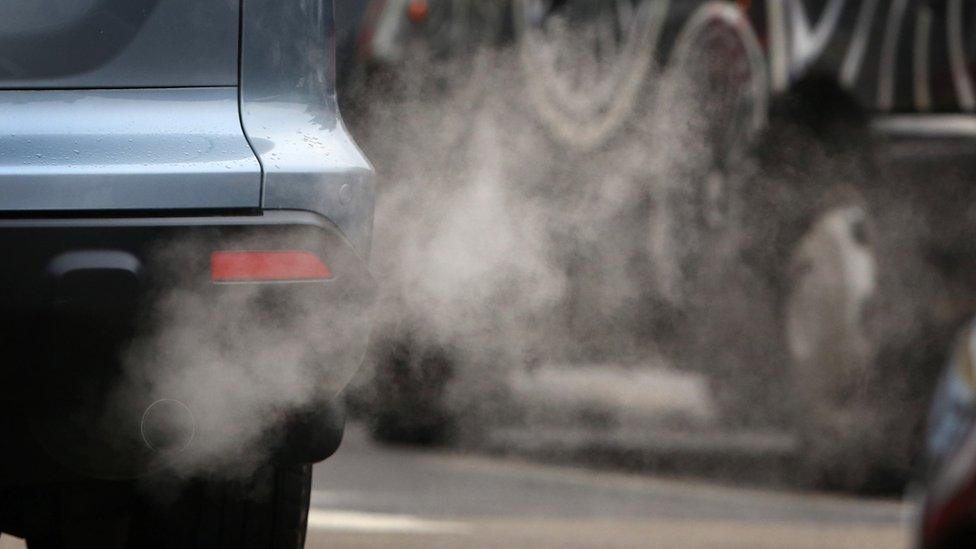
Will a third runway increase the number of vehicles on the roads around Heathrow?
A recent report by the Environmental Audit Committee , external(EAC) says deciding why people are there could have major legal ramifications. If an area is breaching EU pollution limits from extra traffic, who do you fine? The council? The airport? The lawyers will be licking their lips.
There's a lot at stake - Hounslow council told the committee that poorer air quality could cost it between £2.8-10.8m in additional medical appointments.
How much noise?
Ask 10 different people, I suspect you'll get 10 different answers. What's the most annoying noise? For me, it's people being loud on the train, but then I don't live under a flight path.
As of now, the government doesn't have clear guidance on noise. They tend to use a "significant annoyance" threshold of 57 decibels (dB), external on average over 16 hours, which comes from a 33-year old survey.
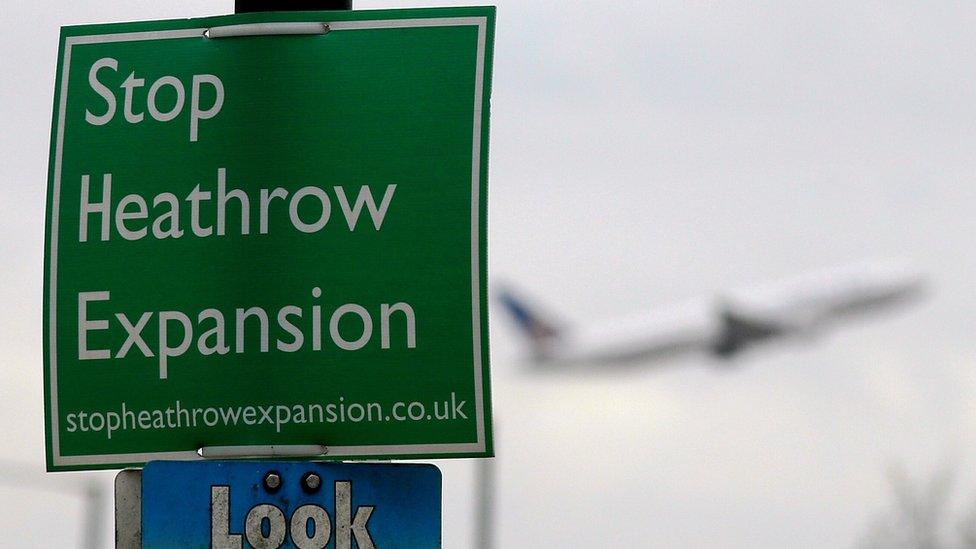
Should you measure average or peak noise levels?
But a more recent survey from 2007, external suggests we're getting more wound up by noise, so 55dB would be a better guide. What's worse, sharp peaks or a long drawn out but slightly quieter racket? Should you measure noise as an average across the day, week or year?
In a written submission to the EAC, Mr Paul McGuinness, a Teddington resident, noted that average noise contours were not designed to measure "the very thing that disturbs people, which is peak noise".
The Airports Commission recommended legal limits on noise around Heathrow but it can't decide what sort of noise to cut. That comes down to government policy.
And here's another quandary. What do you plump for? New flight paths that affect the smallest number of new people, or flight paths that fly over more houses but offer longer breaks during the day?
Plus, how do you make sure Heathrow sticks to its promises, not just now but in the future?
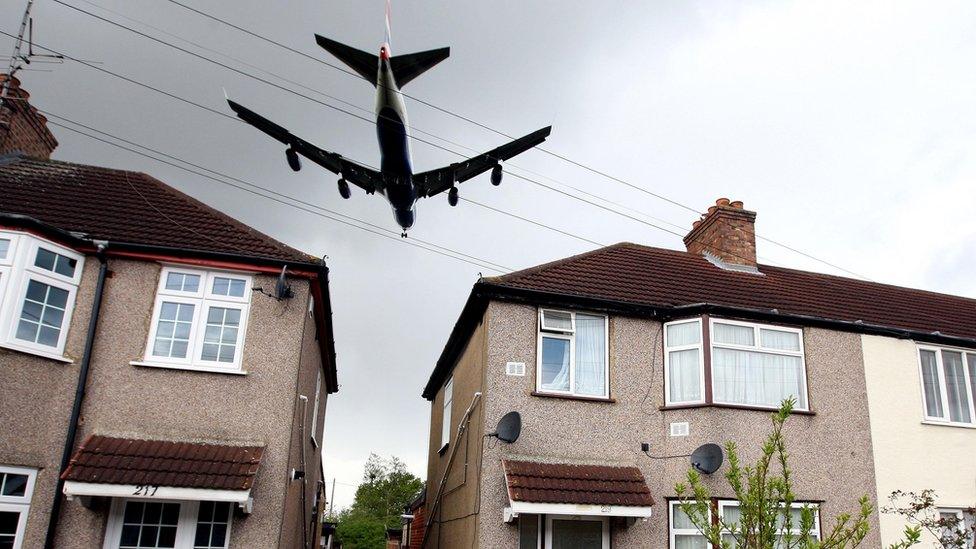
Should new flight paths be as short as possible, or those that offer longer breaks to those affected during the day?
The committee heard that back in 2005, when the airport wanted to build Terminal 5, Heathrow promised to refit 42 schools and community buildings with noise insulation.
Not a lot of work compared to their promises this time around, but they still didn't finish it until this year. That's a decade for 42 buildings.
Greenhouse gases
Just like with NO2, the government's got to hit legal limits for the greenhouse gas carbon dioxide (CO2), based on the Climate Change Act, external. And we're talking about a whopping great cut here. 80% by 2050 compared to 1990 levels.
Without doing anything, the Airports Commission says a third runway would increase CO2 aviation emissions by a little under 10% - by 2040 aviation will represent 24% of all UK CO2 emissions the Commission found. It's only 6% today.
There are things you can do, potentially, to mitigate against a rise, but the Commission says it's not down to them to decide that policy, in fact they've put the ball right back in the government's court.
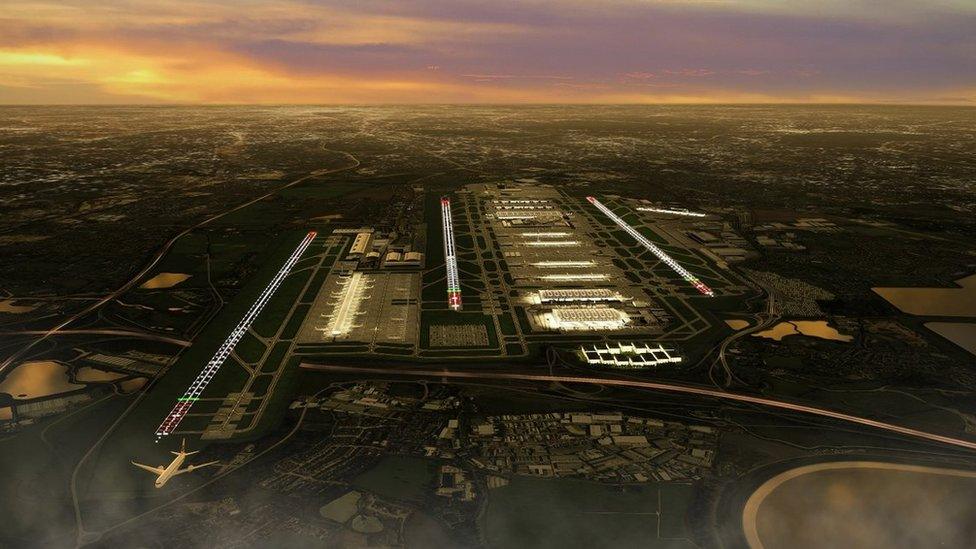
The Airports Commission says a third runway would increase CO2 aviation emissions by a little under 10%
There are plans for a global emissions trading scheme in future, where airlines could swap carbon credits with other airlines, possibly other types of polluters too. But will that be enough to offset all those extra planes at Heathrow?
Will enough people want to trade? Will using biofuels make much difference in future (the jury's out) and what impact might letting Heathrow grow its carbon footprint have on regional airports? Would they have to shrink to let Heathrow grow?
Sorry about all the questions but you get the point.
After kicking this issue into the long grass back in 2012, the government's suddenly got a lot on its plate. Any mistake could see the scheme bogged down in the courts for years.
- Published1 December 2015
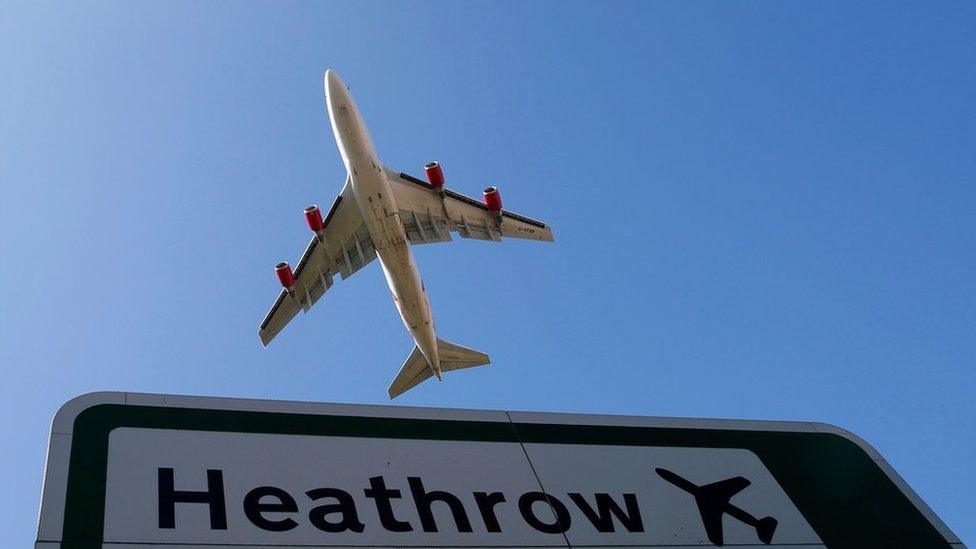
- Published8 November 2015

- Published6 October 2015
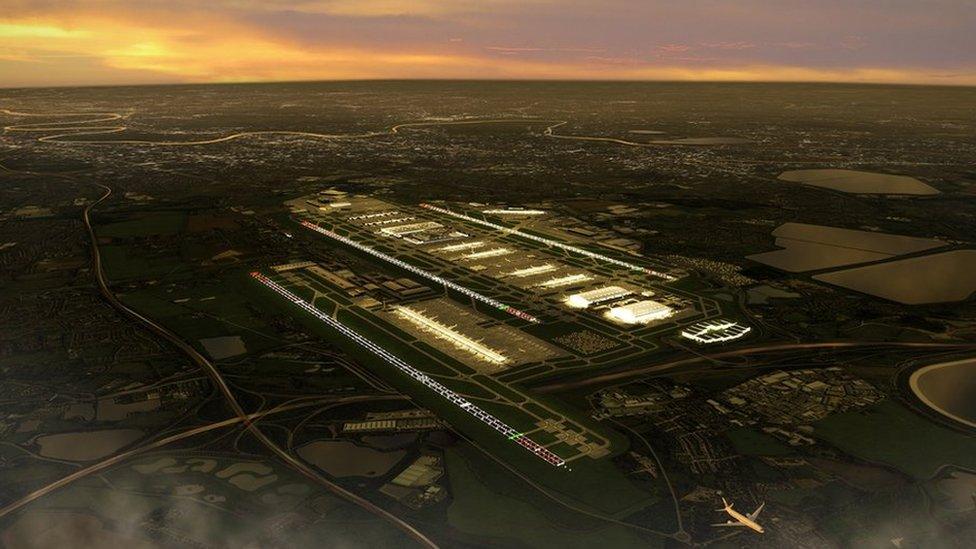
- Published1 July 2015
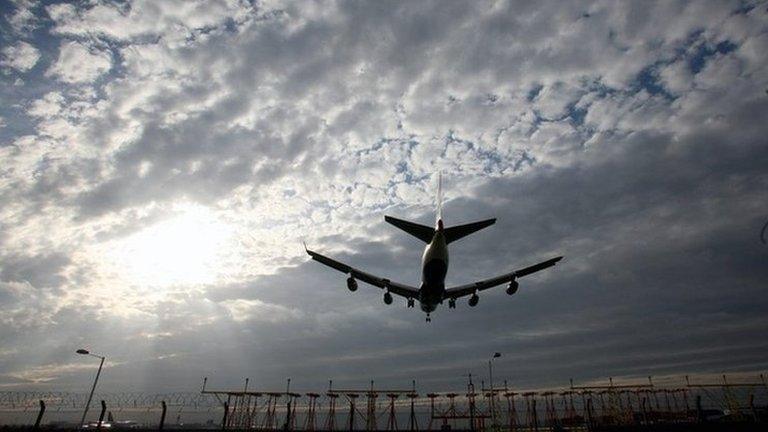
- Published30 June 2015

- Published29 April 2015
